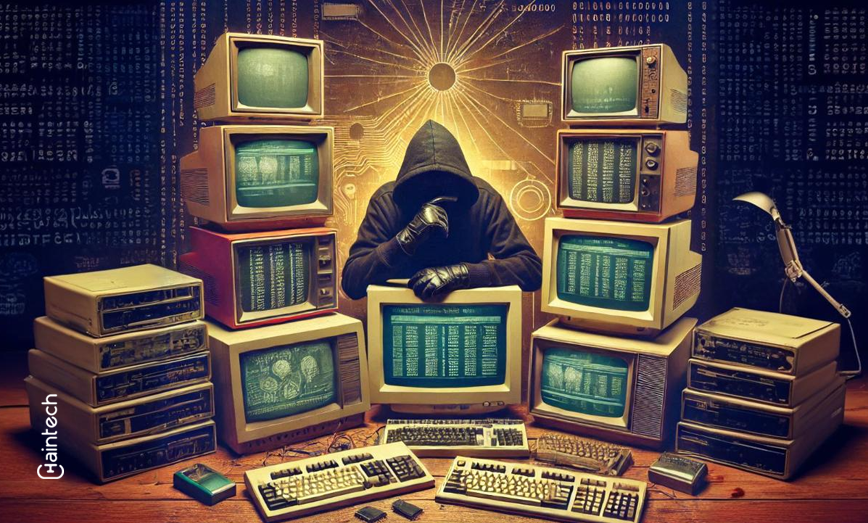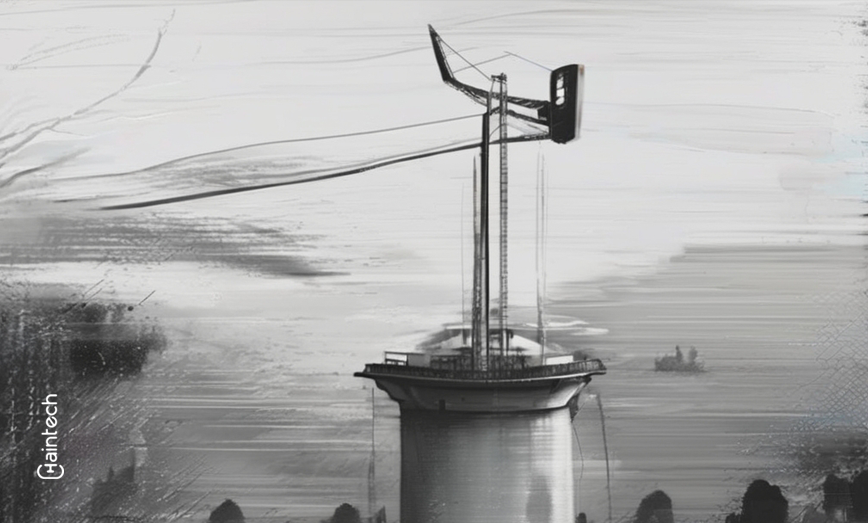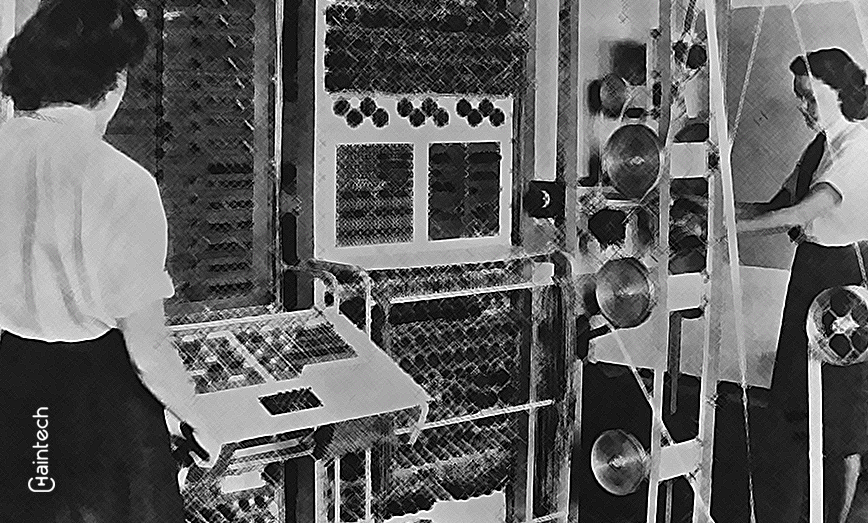“Prophet” Cracks BellSouth AIMSX Computer Network in 1988

Picture this. It’s late night, and you’re at your desk, casually browsing the internet, when, out of the blue, you notice something that you ought to have spotted—something that one would think one shouldn’t come across at all. This was how a hacker known as “Prophet” got himself into trouble in 1989.
As he was exploring BellSouth’s networks, one document he came across could have been a ticking time bomb in unwanted hands. This document, termed E911, contained important information about emergency services in the United States.
This was a turning point in the history of security, and it rang an alarm to the relevant authorities about the extent to which such systems could be vulnerable to attack. So, given this incident, how does it affect modern cybersecurity practices? Read on to see how this moment in history shifted the paradigm in protecting sensitive information.
Prophet and the E911 Document: A Wake-Up Call
In 1989, the issue of cyber security was not as popular as it is today. Most people did not even imagine that there was something called hacking, but the Prophet did. On one regular evening, Prophet was able to break into the internal systems of BellSouth. What he found was the E911 Document, a guide that offered instructions on the operations of the emergency services in the country. This was not just normal data—it was how emergency operators reached the clients that needed them.
The dangers of interference with emergency services are clear. Imagine, for instance, that there is a disaster, and someone manages to take control of all of the emergency services. Without proper care, people would perish. Regardless, the Prophet had no intention of inflicting any damage. He, however, handed the paper to a group of hackers, the Legion of Doom. This action was not to be welcomed by the powers that be. It brought about scrutiny and his arrest.
Yet, what makes this episode so unique is not just the fact that it happened at all but what it meant: the insecurity of systems that most people had no doubt were secure. It was a time when computer security did not exist. At least that concept had never crossed anybody’s mind: how easily hackers were capable of intruding into such critical systems.
How the Legal System Responded
Once the Prophet was caught, he faced legal consequences. When Prophet was hacking computer networks, laws were still evolving around hacking, along with the Computer Fraud and Abuse Act (CFA). His case became one of the first few to test those laws.
This incident made legislators begin to take a more serious look at laws regarding cybersecurity. It proved to people that cyber criminals are not simply children acting out—they can devastate. In the present day, the legal profession has evolved to catch up with crime. Entering a critical system without permission is now a biteable offense. However, with hacking tools more advanced than ever, the question remains: are we safer today than we were back then?
The Evolution of Cybersecurity: Lessons from the Prophet
The Prophet incident taught companies and governments a critical lesson: security isn’t something to think about after the fact—it has to be built into the system from the start. Back in the 1980s and 90s, most systems were designed with convenience in mind, not security. Prophet’s breach of the BellSouth network exposed these systems’ vulnerability.
Let’s take a look at how cybersecurity has evolved over the years:
| Cybersecurity Element | Then (1980s-1990s) | Now (2020s) |
| Firewalls | Basic or absent | Multi-layered, highly advanced |
| Encryption | Rarely used | Standard practice |
| Authentication | Weak, simple passwords | Multi-factor authentication (MFA) |
| Awareness | Low, reactive approach | High, proactive measures |
| Legal Protections | Limited laws | Strong legal frameworks globally |
As you can see, things have come a long way since the Prophet incident. Now, systems are much more secure. Firewalls are more complex, encryption is a standard practice, and multi-factor authentication is common in most organizations. But these improvements didn’t come overnight—incidents like the Prophet’s drove them.
Securing Critical Information Today
One of the biggest lessons from the Prophet case is the importance of protecting critical information. The E911 Document was far too important to be exposed to hackers. Today, organizations have learned to be more careful. They know they can’t leave sensitive information open to attacks.
So, how do companies ensure that their data stays safe? Let’s explore some key strategies:
- Encryption: Every piece of sensitive data needs to be encrypted. This ensures that even if hackers get in, they can’t use the data without the encryption key.
- Access Control: Not everyone should have access to sensitive data. By limiting who can view certain documents, organizations reduce the chances of a breach.
- Incident Response Plans: No system is 100% secure. Organizations need a plan to respond to breaches quickly and minimize damage.
By taking these steps, companies can avoid the mistakes made during the Prophet incident.
The Shift to Proactive Cybersecurity
In the years following the Prophet incident, there has been fundamental progress from reactive approaches to practical cybersecurity applications. Back then, companies operated only after a breach had occurred. Now, they realize that it is no longer possible to wait until something goes wrong before acting.
So, what does the modern version of proactive cybersecurity look like? Here are a few key elements:
- Penetration Testing: Also referred to as ethical hacking, penetration tests enable organizations to address and repair certain defects and vulnerabilities another individual or group of individuals had not previously done without being analyzed.
- Continuous Monitoring: Inside the systems, monitoring has to be ongoing, all the time, every day of the week. If, for example, something doesn’t appear as though it is supposed to, security teams are accustomed to resolving the matter immediately.
- Vendor security checks: Many companies engage third-party organizations that provide vendors with services that may be subpar in terms of security. Organizations have and continue to ensure that their associates or partners are also compliant with the required cybersecurity.
By integrating such approaches, sustainable organizations can avoid most of the data breaches that were historically widespread.
The Long-Term Impact of the Prophet’s Actions
While the Prophet incident may seem like ancient history in the fast-moving world of technology, its impact is still felt today. It showed the world how dangerous it is to ignore cybersecurity and gave lawmakers a reason to tighten regulations.
Since then, countless security breaches have occurred, but the response has differed each time. Now, companies and governments realize that merely protecting data is of no great importance; the very people have to be protected. If systems like the E911 network had been hacked back in the 1980s, people’s lives would have been at risk. Similarly, the same factors also apply to the protection of health records, funds, emergency services, and so forth.
The modern attitude towards the Prophet may help understand that security threats are not merely dangers posed to organizations, but rather, there can be implications in the real world.
Cybersecurity is Everyone’s Responsibility
Ultimately, ‘Prophet’ was not merely an attack on BellSouth’s system; it served as a clarion call for the entire cybersecurity industry, prompting them to devise stronger security measures. For instance, it showed us that hackers are not an extinct species, and neither will there ever cease to be a need for strong security practices.
There is one lesson that we learned from this case; cyber security is something to take seriously because it is life or death. The costs are too great if you consider yourself as running a business or merely handling personal data in a personal capacity ever since then.
If there’s one thing, we can take away from the Prophet case, cybersecurity isn’t something to be taken lightly. The stakes are too high. Whether you’re running a business or just managing your personal data, the lessons from Prophet’s time are still relevant today. Stay vigilant, stay informed, and stay secure.









